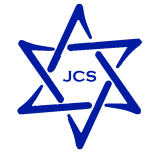In the early 1960s, a small group of people, almost all social scientists at the University of Michigan, met to consider what they might do for their children’s Jewish education.
At that time, there was only a very small Jewish community in Ann Arbor, a city that had not yet come to embrace any form of diversity or intercultural awareness. There was no recognition of Jewish holidays in the public schools (indeed, there were almost no Jewish teachers in the system), Christian prayers were led by teachers to thank God for mid-morning snacks in the lower grades, schools all conducted Christmas pageants, and tests were scheduled without regard to Jewish holidays. There was only one congregation in town, a Conservative synagogue.
One of the members of this small founding group had grown up in the Jewish Parents Institute (JPI) in Detroit, a secular Sunday School that was as a co-op — a remnant of the Jewish socialism that characterized much of the cultural life of Ashkenazi emigrants to America in the earlier years of the century. The Ann Arbor sociologists, social workers, and psychologists, all children of the same cultural heritage, adopted the JPI vision of a school in which their children could develop an informed Jewish identity, but without prayers, obeisance to God, or adherence to Jewish religious custom. Like many modern liberals and progressives of the day, they rejected a God-and-ritual-centered approach and the authoritarianism that several of them remembered from their own Hebrew school days.
The small group enlarged itself by inviting friends to participate in concrete planning and began to include adult fellowship as a feature of what they called the Jewish Cultural School.
A small grant was obtained from the predecessor of today’s Detroit Jewish Federation, and JCS set up shop in space rented from a Division Street church. The organization was run in true co-op fashion: the parents painted and furnished the space, elected the school principal, and volunteered as teachers. Classes were held on Sunday mornings, and while the children were in class, their parents met in a University of Michigan seminar room on Huron Street. Historians, sociologists, political scientists, and others (many of them scholars visiting the university) met with the parents in an adult education program. Bar-mitzvahs (there were no bat-mitzvahs in Ann Arbor at that time) were privately arranged by those families who wanted the tradition for their children. JCS members and staff became active and recognized leaders in the larger Jewish community.
JCS has come a long way since then, but our roots still show: we continue to appeal particularly to people in the healing arts, we still rely on members to carry on much of the work of the organization, and we strive to maintain a non-hierarchical structure. Several members have served on the board of the JCC, sometimes as presidents and vice presidents, while others have been elected to the board of the local Jewish Federation. We participate in various Ann Arbor area community-wide organizations and programs, such as Keshet, the Apples and Honey fair, the Black-Jewish Coalition, and the Interfaith Council for Peace and Justice. We have also joined the Congress of Secular Jewish Organizations, hosting two of CSJO’s national convocations and taking on leadership roles in the national organization. We are now well established as a secular and humanistic organization.
Eventually, the Jewish Cultural School changed its name to the Jewish Cultural Society, of which the Sunday School remains a part. As a society, we are a full-service congregation with popular and well-attended holiday observances and Shabbat services, an extraordinary and much admired b’nei mitzvah program, adult education, and social events. Our nature as a non-religious organization has made us a particularly welcoming place for children and parents in interfaith relationships and for those who would not otherwise join a religious community.
JCS remains a membership-based organization, and all member families are expected to participate in its governance by serving on the Board of Directors and committees. We work hard to retain the sense of camaraderie and fellowship that characterized our earlier days and continue to maintain our traditions as we adapt to a constantly changing world.
